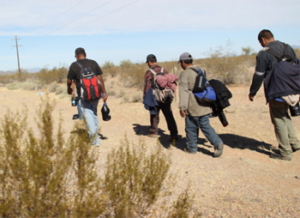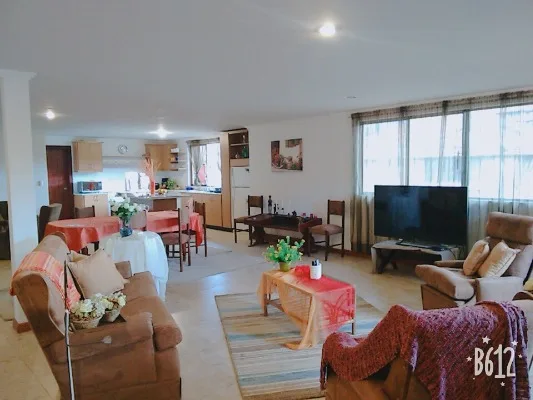Of coyotes, desert treks, singing for money, and pursuing the American dream: A Cuencano’s journey to the U.S. and his return home
By David Morrill
Diego Plasencia’s American dream had crashed and burned long before he sat down on a New York sidewalk with his guitar on a summer morning in 1998.
He admits that he wasn’t much of a guitar player, and less of a singer, but he was desperate for money he needed to return home to Cuenca. When a man approached and asked if he could play a Frank Sinatra song, Diego had to admit he didn’t know who Frank Sinatra was. “I wasn’t comfortable speaking English and I didn’t know the culture,” he says. “I was embarrassed.”
Then, the man whose name was Pat and who Diego calls his angel, asked if he needed a job. That’s when Diego’s fortunes began to change.
Two months earlier, Diego and eight friends from his home town of Sigsig left Cuenca for the U.S. Since they didn’t have visas, they had paid a man, commonly known today as a coyote, to make the arrangements; it cost each of them from $10,000 to $20,000. “He bought the plane tickets, gave us travel documents, and had arranged for his contacts to meet us in several places during the trip,” Diego says. “But he also told us that it would be hard, that there would be a lot of walking. He was honest about what we faced. We knew we were taking a risk.”
The trip north was difficult but manageable until the group arrived in Mexico. “After we flew to Panama City, we had to take buses, sometimes in the luggage compartment under the bus. To get to Mexico from Guatemala, we rode in an overloaded little boat that we thought would sink.”
Crossing Mexico to reach the U.S. border presented brutal challenges, including walking across the desert for six nights. “Most of it was in the dark so we wouldn’t get caught,” Diego said. “During the day, we slept in bushes or caves. We ran out of water and had to drink what we found on the way; sometimes it was dirty and we had to drink it through our shirts.” At one point, one of his friends injured his foot and Diego carried him on his back for two nights. “That was the hardest part of the trip,” Diego said. “It was tough.”
It took the group three attempts to cross the U.S. border. On one of them, Diego was picked up by Mexican immigration police, taken back to headquarters and questioned, and spent the night in jail. “I had learned the name of Mexican towns and customs and pretended I was Mexican and they believed me,” he said. The next day the police dropped him off at the border.
Following a successful crossing into Arizona, Diego and his friends spent a night in a safe house in Phoenix, where they had their first decent meal in days –although they had to box a group of Mexicans for kitchen rights. They showered, had haircuts and picked up their counterfeit IDs and airplane tickets. The next day, the friends from Sigsig went their separate ways. Diego flew to New York.
In New York and Connecticut, Diego had places to stay with relatives who had gone before him, but little else. “My relatives were busy with work and couldn’t help me much except to give me a bed. Almost as soon as I got there, I wanted to go home,” he said. “Except for a couple of odd jobs, I couldn’t find work. I was desperate. When I was walking the streets I hoped the police would pick me up and send me home,” he said.
Everything changed, however, that day on the sidewalk with his guitar. Diego’s angel, Pat, found work for him in a restaurant in Port Chester, 20 minutes from New York City, where he bused tables and handled clean-up chores. “It was hard work and I was on my feet all the time, but at least I had a job,” Diego said.
After two months at the restaurant, he contacted Pat again and asked if he knew of another job. “The job he found for me was in a flower shop in Port Chester,” Diego said. “The owners asked if I planned to return to Ecuador any time soon and if I was available 24/7. I said no, I wasn’t going back and yes, I was available whenever they needed me.”
According to Diego, the job changed everything. “I loved it and loved the owners,” he said. “They treated me like their son. I worked there for almost five years.”
Beginning as a delivery boy, he worked his way up to flower cutter, arranger and then designer. “I’m good at drawing and started illustrating designs for the arrangements,” he said. He had the most fun, he said, doing illustrations for Bar and Bat Mitzvahs that the flower shop serviced.
“I would do the drawings for the themes that the kids wanted, things like the Simpsons, James Bond, or baseball or basketball players, where I would superimpose the face of the boy or girl,” Diego says. “It was fun working with them and to see them enjoy the art.”
On the side, Diego pursued his new passion, fitness training. “When I was in Cuenca, I did a lot of biking, running and swimming, but no weight training. When I got to New York, I joined the YMCA gym and noticed how fit the people were who worked out. I became very motivated in pursing weight training.”
By 2001, his passion had turned into a sideline job and Diego was working as a fitness trainer, mostly for other Ecuadorian immigrants. “I studied how the trainers worked at the YMCA and learned how to train other people. I loved it and spent a lot of my nights and weekends doing it.”
Although Diego had achieved a certain level of contentment with his New York life, with his work at the flower shop and as a trainer, he admits that he missed home. “I was becoming homesick,” he said. “I missed my family. I missed my friends. I missed the food and traditions of Cuenca.”
Because of his illegal status, he wasn’t able to go home for visits. “Without a visa, I couldn’t take a vacation to Ecuador. I felt like I was trapped.”
By the end of 2003, Diego decided it was time to go home and on January 1, 2004, he flew into Guayaquil. When immigration police asked if he had a visa for his trip to the U.S. he said no, that he had been there illegally. “They just said, ‘welcome home,’ and when I came out to the waiting area, my whole family was there,” he said. “I was very happy.”
Reestablishing his life in Cuenca, Diego worked for his father’s residential construction business, taking night classes in advanced English. After he earned a certificate in English as a second language, he taught English on Saturdays.
He continued his fitness training at local gyms and in 2005 was runner-up in his weight class in the Mr. Cuenca competition. In 2007, with the help of his family, he opened Art Gym, on Calle Gualaceo at Av. Las Americas, relocating to the present location on Calle Alfonso Jerves in 2011.
Today, Art Gym is notable for its large number of expats members, about 40 percent at last count. The gym also has a large number of women members. “I want this to be a comfortable environment, where everyone can train at their own pace and not feel intimidated by super-serious body builders,” he says. “I like the mix of different ages, of men and women, of gringos and Cuencanos. There’s a good feeling here,” he says.
Diego offers instruction on the gym’s equipment to new members at no charge, but is also available for individual training.
“Now, I’m doing what I want to do and enjoying it,” he says. “I’m happy with my life in Cuenca. It’s good to be home.”
___________________
Art Gym, Alfonso Jerves, 4-27 at Calle Larga; phone 099 924 9457; email diegobelo30@hotmail.com; Hours Monday to Friday, 6:30 a.m. to 12:30 p.m. and 3 p.m. to 9:30 p.m., Saturdays 9 a.m. to 1 p.m.



























